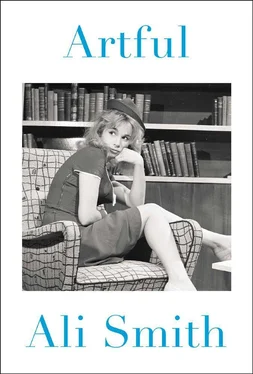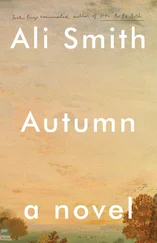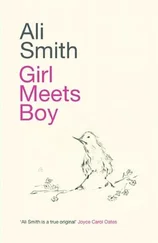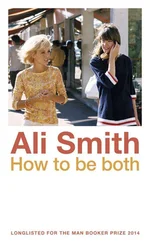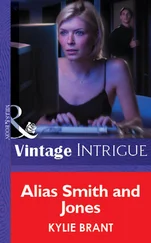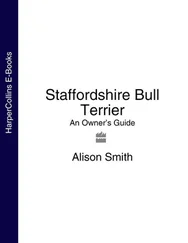Ten points to the first person to see someone back from the dead. There was an explanation for the stain where the tea had sunk into the floorboards. I’d done it myself, obviously. But I had to congratulate my imagination, for you were very like you. Though I’d never have imagined the imagination could be so good with smell; you smelt quite strong for something or someone imaginary. Either way, you’d come back, and it was about time.
But if I went to bed and went to sleep, would you still be here when I woke up?
Tell me where you’ve been, I’d said to you earlier. What’s it like? And don’t just say ‘what’s been , again?’ Come on. You used to know all the words. You knew more words than anyone. Tell me.
Your black eyes gleamed like cut coals, animal eyes. You raised your arm and hit the wall next to the bookcase.
Four, you said.
You mean the wall? I said. You mean four walls? Like a prison?
You shook your head. I could almost hear you thinking. It was like the noise a broken tree makes when its broken part, after lightning has hit and split it, is too heavy for the rest of the tree, is about to split right off and fall. With great effort, you spoke. You pointed first at one wall then another.
Dark. Dark. Dark. But one is light.
Three dark walls and one light wall? I said.
You tapped the coffee table with your hand.
Again? you said.
It’s a table, I said.
Yes, a table, and people, food, a woman, hair, it’s what is it? Light, bright hair.
There’s a woman there? I said. With bright hair? What woman? Who? Do you know her?
And a man, next to the woman, you said.
Oh, right, I said. Is he with the woman? Or is the woman something to do with you?
— he’s got, it’s wood, with, what is it, again? String? Hand. A man, and the wood with the string, in his hand, you know. Epomony.
He what? I said.
Epomony, you said. Epomony.
Oh, the imagination was fantastic: mine didn’t just make up some place you’d been, it even made up words whose meanings I didn’t know — which was exactly what it had been like, to live with you. In fact when I went through and tried to look up that word in the dictionary I couldn’t find a word like it. So the imagination was even more amazing than I’d given it credit for. Lying in bed now, for instance, with you next to me with all your clothes still on, I could actually feel what felt like real grit and dust all along the underside of my left thigh.
D’you think you could take the mug out of your pocket? I said. It’s poking into my hip bone there and it’s actually quite sore.
Mud, you said.
Mug, I said.
Mud, you said again. Then you said the word: fog. Then the word: town.
Where? I said. Where you were?
Oliver, you said. Twist.
How’d you know I’m reading Oliver Twist? I was about to say. But you’d begun to snore.
If only I’d reimagined you without your snoring. But then it wouldn’t have been true, would it? It wouldn’t have been you.
I lay there beside you, beside myself in the dust and grit of you, because though you were gone you were here, and what would happen next? Whatever happened, I’d let it, because it knows us inside out, the imagination. It knows us better than we know ourselves. It couldn’t have been more timely. It knows the time of day all right.
I placed a jar in Tennessee
because I could not stop for death
to see a world in a grain of sand
where Alph, the sacred river, ran.
Nobody heard him, the dead man
alone and palely loitering,
rage, rage against the dying of
the golden apples of the sun.
You stand at the blackboard, daddy.
Let the traffic policemen wear black cotton gloves.
And for that minute a blackbird sang.
What will survive of us is love.
It would maybe have been better if you could have come back from the dead a bit differently. I mean if you could have come back as an array of different yous, like anyone with the originality you had when you were alive should naturally have done; for instance if you’d come back as a dog, a mythical sort of one, one that could speak and would even occasionally do my bidding, occasionally sit at the table with me and converse while we ate our dinner, or if you’d come back as a small star, or a wing or a tongue of flame hovering above my head whenever I went anywhere, or a mystic vision of, I don’t know, an ibis, or a waterfall which would just suddenly appear, or a flowering bush or an angel or a devil or a rain of coins, a puff of mist with a big paw for a hand like in the Italian picture of the woman being held in an embrace by nothing but a gray-black raincloud.
Because when I think about what it was like to live with you, it was like all these things. It was like living in a poem or a picture, a story, a piece of music, when I think of it now. It was wonderful.
Not that I wasn’t glad you were back, coming and going like you did over the weeks, the same you only slightly more ragged-looking every time, and every time coming in like I wasn’t even there and going straight over and sitting at the study desk, pulling your hair out over those talks you had been going to give about books and art. I never saw you doing any actual writing, I only ever saw you pulling your hair out.
You’ll be bald soon if you keep doing that, I said.
Like the nodding De Chirico heads in Sylvia Plath’s The Disquieting Muses, you said from your seat at the desk.
If you say so, I said, whatever they are when they’re at home.
It’s a poem, you said, about a frightening childhood vision which partly inspires a child to be an artist and partly leaves her no option but to be it. I should write about Plath in this talk on form. She’s someone who works so hard to master form in her earlier poems that in the later poems she finds a kind of formal liberation and can do anything she likes.
Right, I said. Uh huh.
It was like you had no idea you were dead.
It’s because of the tightness of stanza, you were saying, and the syllabic patterning in her early poems, poems like Black Rook in Rainy Weather, that when she gets to the final work, the poems in Ariel, she can fly completely free-form. But only because she’s understood it in the first place. It’s like the tightness of form in the early poet releases the openness of form in the later.
Yeah, and she lived a jolly life, didn’t she, happy and fulfilled and so on, I said.
You turned your black eyes and your blackening nose on me and you sighed.
I’ve told you a hundred times, the life is nothing to do with it, you said. The life is the least of it.
You were back on form yourself. You could speak again without having to stop and wonder what words meant, though you were a bit nasal-sounding now; you were sounding more and more alarmingly like your old self with each visit home, and you were staying longer with me each time, though your actual nose now was almost gone, was sort of hollow, and the smell you sent ahead of yourself was so much worse than the clean earthy smell you’d first had when you came back that when I came home from work and walked up our street now I’d always know several houses away if you were there or not, and also there’d been some notes through the letterbox from next door, about drains, and I tried not to mind that every time you left again more things from the house would have gone missing: my watch, almost all the pens, the remotes for both the tv and the dvd (which meant I couldn’t actually switch them on), the little onyx owl off the mantelpiece, the red pair of pliers, the recharger for the electric toothbrush, the tweezers, even once a whole table lamp went; and I tried not to mind that you seemed more interested, when you did come here, in spending time poring over those old unfinished talks you never even gave at a university than in me, since of course it was because of me, not them, you were coming back here at all, wasn’t it?
Читать дальше
